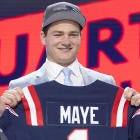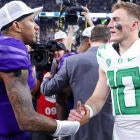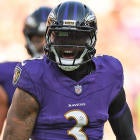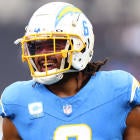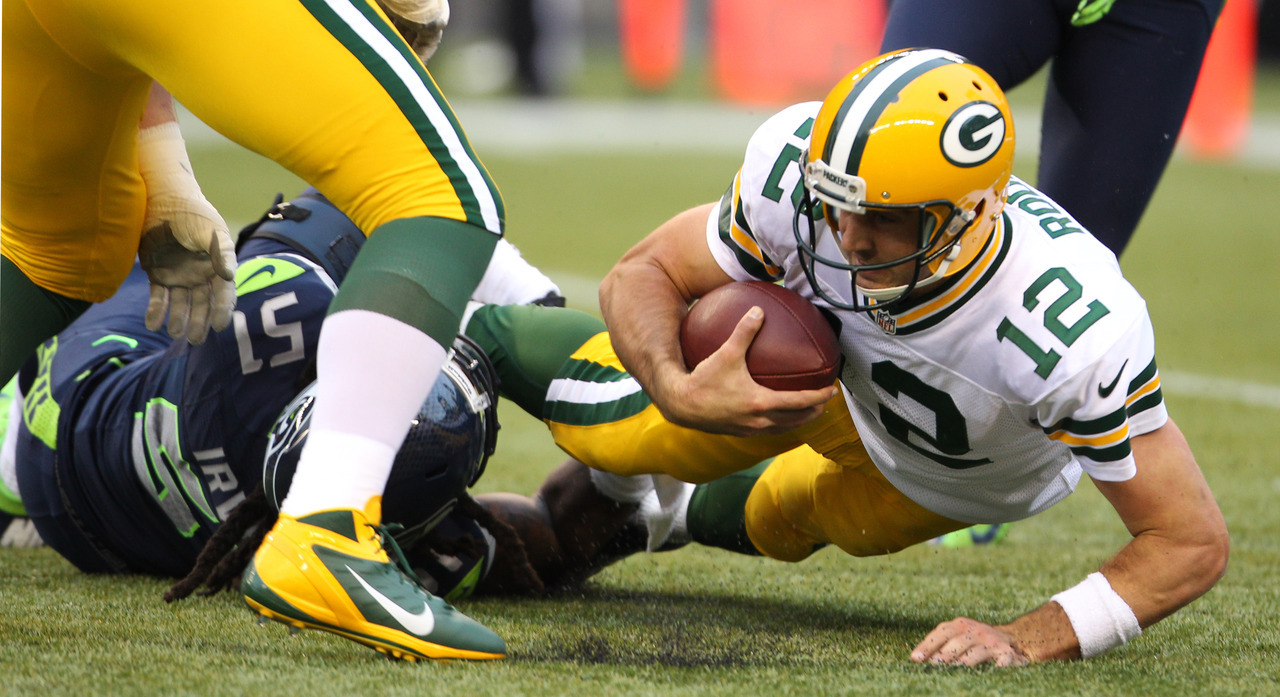 |
| The replacement officials certainly had a hand in Green Bay's Monday night loss in Seattle, but so did the Packers offense which is well off last year's torrid pace. (Getty Images) |
As has been said before by fans, players and analysts alike, the replacement referees aren’t very good.
The Packers knew that coming into Monday night's game at Seattle, and it was only made clearer when those officials decided the outcome of the game, snatching victory from the Packers and giving it to the Seahawks on a now infamous Golden Tate touchdown.
But what is to be made of the Packers offense? A group that led the league in scoring (35 points per game) and shattered team passing records last season en route to a 15-1 regular season is averaging just 19 points per game and has the 20th-ranked passing offense, leading to the team's 1-2 record.
It wasn’t supposed to be like this. Unlike the replacement refs, we expected the Packers offense to be good. Rather, to be great, prodigious. Through three games, it’s painfully clear that it isn’t and may not be again. If there’s blame to be placed for Green Bay's farcical 14-12 loss at Seattle on Monday night, it belongs with the offense as much as the officiating.
Here’s how the Packers graded out on Monday:
Offense: D
It just can’t be ignored or dismissed anymore. They’ve played three good defenses and three games does not a season make, but it sure illuminates some trends that, for this Packers team, are ominous. Players and coaches are sick of hearing about last year, but given this team is 1-2 and just scored 12 points, a comparison to make a point is warranted. Through three games last season, Green Bay scored 99 points and racked up 1,210 yards. Through three games this season, those numbers are 57 points and 913 yards. That’s a difference of 14 points and 99 yards a game. Teams have figured out how to mitigate the big-play threat of Green Bay’s offense and they’re getting consistent pass rush pressure. Against the Seahawks, all five of the Packers’ first-half drives ended in punts and they were shut out. Rodgers was sacked eight times. Replacement refs or not, this team has to score more than 12 points -- and just one touchdown, compared to an average of five per game in 2011 -- to win.
Defense: B+
It’s strange to see a No. 1 ranking attached to the Packers’ pass defense after it was the worst in league history last year. But, though they’ve played three below-average passing offenses, it is a deserved status. They Packers have improved their pass rush, their coverage is better and the secondary’s tackling has been first-rate. Against the Seahawks, against a rookie quarterback, they gave up one big play, a 41-yard touchdown pass from Russell Wilson to Tate in the second quarter. It looked an awful lot like last season. But other than that, they kept Marshawn Lynch mostly in check (3.9-yard average) and allowed only 238 total yards. They sacked Wilson just once and hit him only three times, but OLBs Clay Matthews, Erik Walden and Nick Perry frequently pressured the rookie. On the final play, safety M.D. Jennings and the other defensive backs did all they could to clinch the victory.
Special teams: B+
PK Mason Crosby converted his only two field goals, from 29 and 40 yards. The Packers went for two on their only touchdown. Crosby mostly boomed his kickoffs into or out of the end zone, though on one fourth-quarter kick, he only got it to the Seahawks’ 6-yard line (and LB Robert Francois was penalized for unnecessary roughness on the return, giving Seattle the ball at its 42). P Tim Masthay was excellent, punting six times for an average 44.5 yards, while getting three inside the 20 with a long of 55. Return man Randall Cobb fumbled a punt but picked it up himself. He didn’t look decisive and spent too much time going laterally and going nowhere on returns. The coverage units kept dangerous Seahawks returner Leon Washington in check and were good except Francois’ penalty.
Coaching: B-
Coach Mike McCarthy finally changed the gameplan coming out of the locker room in the second half, but why did it take so long? The Packers ran the ball just three times, compared to 27 passes, in the first half and they went nowhere, getting sacked eight times and shut out. In the second half, the Packers committed to the run, feeding RB Cedric Benson and putting together long drives. The adjustment worked like a charm, as the Packers scored points in their first three drives after halftime. McCarthy needs to become more innovative in his offense; it appears teams have figured out his team. And he must use Cobb, a dynamic playmaker, more -- Cobb only had nine touches against Seattle. McCarthy handled himself with class during and after the end-game debacle.
Follow Packers reporter James Carlton on Twitter: @CBSPackers and @jimmycarlton88.












